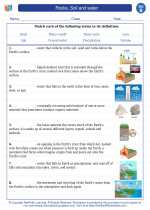Depth Study Guide
Definition of Depth:
Depth is the measurement of how deep or far something extends from the top or surface. It can be applied to various contexts such as ocean depth, soil depth, or the depth of a swimming pool.
Measuring Depth:
Depth can be measured using different units depending on the context. For example, ocean depth is often measured in meters or feet, while soil depth may be measured in centimeters or inches.
Ocean Depth:
The average depth of the world's oceans is about 12,080 feet (3,682 meters). The deepest point in the ocean is the Mariana Trench, which reaches a depth of about 36,070 feet (10,994 meters).
Soil Depth:
In the study of soil science, depth is an important factor in understanding the layers of soil and their composition. Soil depth can impact plant growth, water retention, and the movement of nutrients within the soil.
Depth in Space:
In astronomy, depth is also relevant when studying celestial bodies and outer space. The depth of space refers to the vast distances between stars, galaxies, and other cosmic objects.
Study Tips for Understanding Depth:
- When studying depth, it's helpful to use visual aids such as diagrams and illustrations to understand the concept in different contexts.
- Practice measuring depth using a ruler or measuring tape in real-life scenarios, such as measuring the depth of a swimming pool or a small body of water.
- Explore different examples of depth in nature, such as the depth of tree roots in the soil or the depth of a canyon.
[Depth] Related Worksheets and Study Guides:
.◂Science Worksheets and Study Guides Second Grade. Rocks, Soil and water

 Worksheet/Answer key
Worksheet/Answer key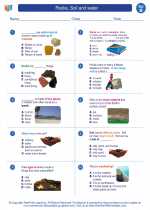
 Worksheet/Answer key
Worksheet/Answer key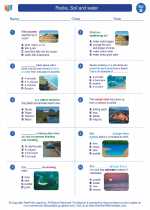
 Worksheet/Answer key
Worksheet/Answer key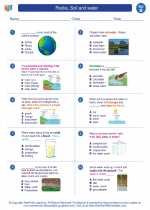
 Vocabulary/Answer key
Vocabulary/Answer key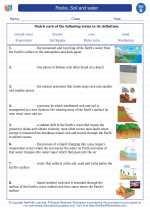
 Vocabulary/Answer key
Vocabulary/Answer key